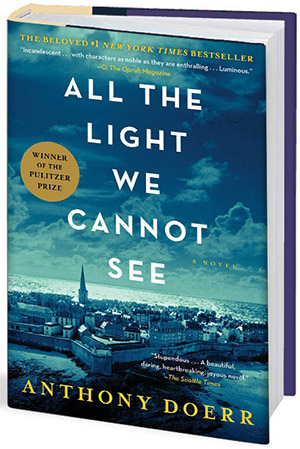“Night falls, autumn in 1936, and Werner carries the radio downstairs and sets it on the sideboard, and the other children fidget in anticipation. The receiver hums as it warms. Werner steps back, hands in pockets. From the loudspeaker, a children’s choir sings, “We hope only to work, to work and work and work, to go to glorious work for the country.” Then a state-sponsored play out of Berlin begins: a story of invaders sneaking into a village at night.”
“All twelve children sit riveted. In the play, the invaders pose as hook-nosed department-store owners, crooked jewelers, dishonorable bankers; they sell glittering trash; they drive established businessmen out of work. Soon they plot to murder German children in their beds. Eventually a vigilant and humble neighbor catches on. Police are called: big handsome-sounding policemen with splendid voices. They break down the doors. They drag the invaders away. A patriotic march plays. Everyone is happy again.”
– Anthony Doerr, All the Light We Cannot See, p. 39
“The Frenchman’s voice is velvet. His accent is very different from Frau Elena’s, and yet his voice is so ardent, so hypnotizing, that Werner finds he can understand every word…”
“Open your eyes, concludes the man, and see what you can with them before they close forever, and then a piano comes on, playing a lonely song that sounds to Werner like a golden boat traveling a dark river, a progression of harmonies that transfigures Zollverein: the houses turned to mist, the mines filled in, the smokestacks fallen, an ancient sea spilling through the streets, and the air streaming with possibility.”
